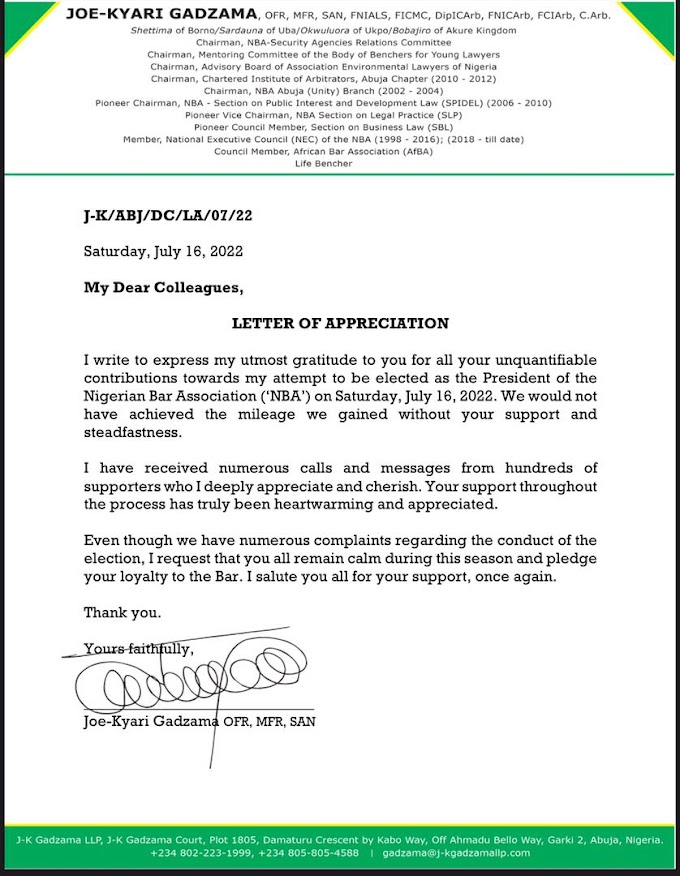FIRST BANK v. UGWU & ANOR (2017) LPELR-42581(CA)
ISSUE
SETTING ASIDE JUDGMENT/ORDER : Whether a judge has the power to set aside the judgment or order of another judge of coordinate jurisdiction
PRINCIPLE
"The next question to be asked and answered is whether the Court below, albeit subsequently and differently constituted: Coram- Amanoh, J., could set aside the final order made by Agbata, J., on 8th October, 2004. The Supreme Court in Aminu Tanko v. The State (2009) 4 NWLR (pt. 1131) 430; (2009) 14 WRN 1; (2009) LPELR 0 3136 (SC), had set out three conditions which must guide Courts faced with the sort of situation posed in this appeal, that is setting aside of previous decisions by the Court which had made an earlier decision on the same subject matter. His Lordship, Aderemi, JSC at pages 23 - 24 of the LPELR had this to say, to wit: "However, having regard to the commonly agreed statement that infallibility is never the virtue of any human being - errors can be made at any time by any human being.
Where such errors come within the bracket of "SLIP RULE"- minor or clerical mistakes, this Court like other Court below it, must be willing to effect correction upon being invited to do so by an application. Again, when over a period of time a judgment or judgments of this Court already delivered are patently seen not to be meeting the course of desired justice, this Court, again, upon an invitation to it through an appeal or appeals, similar in terms of facts, to the previous judgment or judgments, will readily revisit such decision with a view to varying same, or overruling same and setting same aside - all in the interest of justice which is the pre- occupation of all Courts.
However, to guard against instability crippling into the corpus of our laws; the following conditions must be seen to be present in the previous judgment sought to be set aside, and they are: (a) that the previous judgment is erroneous in law, or (b) that the previous judgment was given per incuriam; or (c) that the previous judgment is contrary to public policy or is occasioning miscarriage of justice or perpetuating injustice. See A-G. Federation v. Guardian Newspaper Ltd (1999) 9 NWLR (pt. 618) 187 at 203." In the circumstances of the instant case, why did it not occur to the appellant's counsel to have appealed to this Court against the garnishee order Absolute made by Agbata, J., on 8th October, 2004? Why did he resort to making the application vide the motion on notice filed on 29th October, 2004, to the same High Court which made the earlier order of 8th October 2004, to set aside its own earlier order? It were better, if the appellant had appealed against the order of 8th October, 2004, to this Court and ventilate all her grievances against that order, for it to be reviewed and/or corrected. The authorities of the Supreme Court are to the effect that in circumstances such as it presented itself herein, an appeal to a higher Court then rather than application to the trial Court to set aside its own earlier decision, could be more advantageous to the party affected by the order of the trial Court. For example, in Akporue & Anor v. Okei (1973) 12 SC 137, the Supreme Court held that: "no judge is competent to sit on appeal over the decision or order made by a brother judge. In the context of our legal system, judicial review is primarily the function of the appellate Court." So also in Emordi & Ors v. Kwentoh & Ors (1996) LPELR - 1135 (SC), the Supreme Court maintained her position to the effect that: "It is not competent of a judge to overrule the decision or ruling made by another judge or sit in judgment over the decision of a brother judge. The reason for this is not far to seek, stems from the fact that the Judges are of co-ordinate jurisdiction and no Judge can therefore sit on appeal over the decision or ruling of his brother Judge." Therefore, a Judge cannot reverse, vary or alter the order or decision, he did not make or issue. Hence, the proper course of action to be taken by the party who is affected by the order or decision against him is to appeal against it to a higher Court. NICON v. Power Industrial Engineering Co. Ltd (1990) 1 NWLR (pt. 29) 697 at 707 (CA); Shell Petroleum Development Co. (SPDC) v. Chief Tigbara Edamkue (2009) 7 SCNJ 124 at 142 - 143. I am of the considered and firm opinion that the motion on notice of 29th October, 2004 filed by the appellant which was placed before Amanoh, J., for his consideration and determination was very tempting and it is gratifying that he did not fall for the bait, to redetermine what his learned brother - Agbata, J., had already determined on 8th October, 2004. That is how it should be, for it is said that dogs do not bite dogs, albeit that they bark at each other." Per YAKUBU, J.C.A. (Pp. 26-30, Paras. F-F)







0 Comments